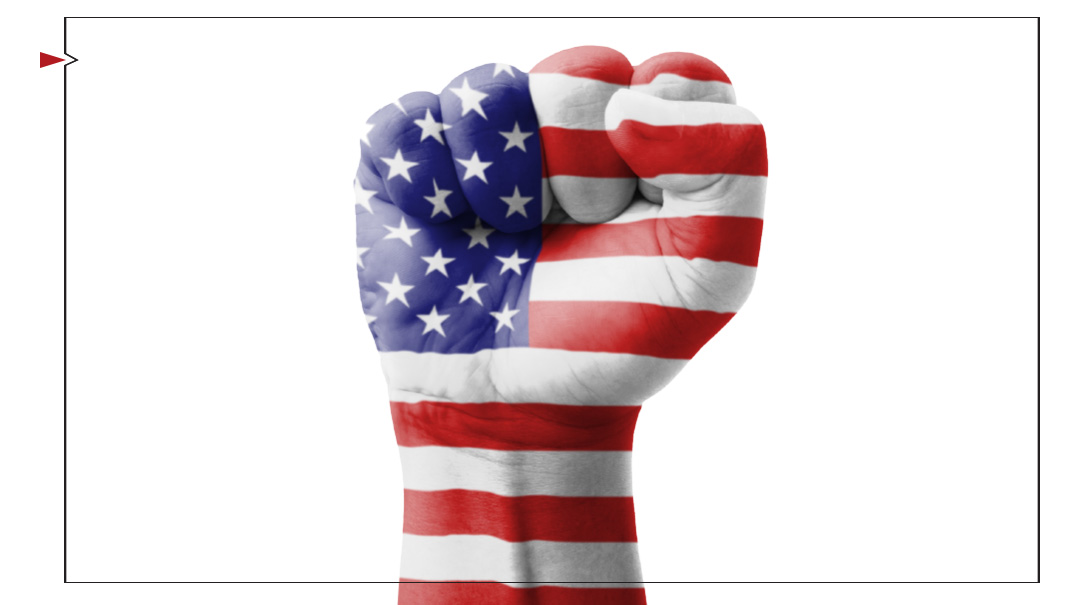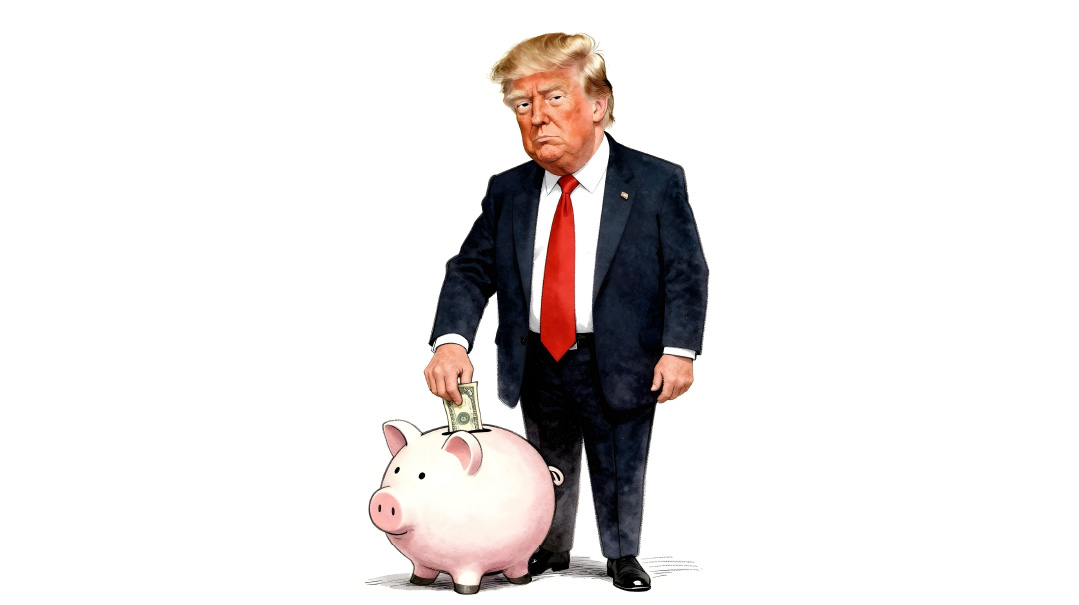America Is Back

After a year behind Ukraine, American credibility is back

W
hen Volodymyr Zelensky decided to stay in Kyiv as Russian paratroopers landed near his presidential residence, he went overnight from comedian to Churchillian.
In retrospect, his personal courage may also have done something more: reversed years of talk of American decline, and restored a sense of American greatness.
Just think where things stood a year ago, on the eve of Putin’s invasion. America’s allies looked on aghast as Washington’s credibility was in free fall, like the desperate escapees who dropped from the wheel wells of the C-17s taking off from Kabul.
Faced with a doddery president who seemingly couldn’t complete an interview unscathed, the revisionist axis led by China and Russia was emboldened as never before.
Joe Biden’s gaffe machine was seen as symbolic of America’s senescence: a once-powerful country that had handed its voters a ballot-box choice between a pyromaniac and a has-been.
As the Ukraine war’s first anniversary approaches, the geopolitical landscape is transformed. Russian power is in tatters; it will take Moscow years to rebuild its military capabilities.
China is still belligerent on Taiwan, but as soldiers all over the world study Ukraine’s successful defense, Beijing is likely having second thoughts about the success of an amphibious invasion.
Ukraine has taught China that if Taiwan can fend off the People’s Liberation Army’s initial attack, there’s a good chance that the US cavalry will ride to the rescue.
Meanwhile, the chaotic collapse of China’s zero Covid policy under public pressure has tarnished the country’s brand, making it unlikely that we’ll hear more talk of a new “Beijing Consensus” to rival Washington’s influence.
Lastly, over in Europe, Russia’s energy weapon has been deployed and found wanting. European unity has been preserved despite the continent suffering through a winter under a Russian energy blockade.
Everywhere you look, the revanchist powers are on the back foot, and a cohesive West — not seen since the end of the Cold War — has reemerged under American leadership.
That reversal was the talk of the town at the World Economic Forum in Davos last week, according to Politico. At the annual gathering of world leaders and CEOs in the Swiss ski resort, there was no talk of Chinese eminence, as in years past — instead there was a sense that the US had demonstrated leadership over Ukraine.
How much credit can the Biden administration take for the turnaround?
Despite hesitating at every stage before providing arms, fearful of Russian escalation, the White House seems to have grown more sure-footed as the weaponry flowing to Kyiv has become steadily more lethal.
But perhaps the true lesson of Ukraine has been that the US has been effective despite the fragility of its leadership.
It’s a measure of America’s enduring strength that divisions are deployed, intelligence flows, and aid is delivered by the great machine that is the American state, whatever the chaos back home in DC.
US capabilities may be stretched thin at present, but as its arms factories retool for another era of conflict, it’s clear that the reflexes and habits of power projection that have undergirded American influence since World War II are alive and well.
Had Zelensky not decided to fight on, Ukraine would likely have fallen, dealing a body blow to US credibility.
But Ukraine’s emergence as the front line of Westernism has given American power a new lease on life.
For all the creaky joints and bouts of exhaustion that come from growing old as a superpower, America is back.
Retiring Rishi
British prime minister Rishi Sunak has an image problem, and it’s called Boris Johnson. When the former prime minister turned up to a hero’s welcome on a visit to Ukraine this week, the incumbent’s supporters harrumphed about Johnson overshadowing Sunak’s foreign policy.
If ever there was a candidate for overshadowing, it’s Sunak. The slight, brainy former investment banker is clearly out of his comfort zone in foreign affairs. On the campaign trail for Conservative Party leader in the summer, he was at his most fluent when talking about the economy.
But in office, he’s become something of a bland nonentity, with below-average media presence.
That’s going to be a political headache for the Conservative Party with a general election under two years away. But as they try to shore up Brand Rishi, his communications team should consider taking a leaf out of Johnson’s book and dropping in on Kyiv or some other foreign policy hotspot.
Modesty and self-effacement are virtues — just not in a prime minister.
AI
There are tech fads that come and go, and there are technologies that prove revolutionary — permanently altering the way we live, in ways both great and small.
It seems safe to bet that AI — or artificial intelligence — will prove to be the latter. Computer systems that simulate human thought processes are now so advanced that free online software can write news articles and song lyrics, and analyze complex issues.
The media storm around the portals such as ChatGPT that do these things will move on as people get used to the idea that many tasks that used to require a college degree can now be done by silicon wafers.
It remains to be seen how much destruction the computers will unleash. Will AI do to white-collar jobs what robots did to manufacturing and mechanization did to agriculture?
2 cm
Anyone out and about in Israel knows that the country is enjoying unseasonably balmy January weather — the driest in 60 years — with clear blue skies and spring flowers appearing far too early. A significant marker is that the Kinneret has risen by only 2cm, less than an inch, whereas in recent years water levels were up by almost a meter by this stage in the winter.
The dry weather may be perfect for the great outdoors, but spare a thought for the farmers. It’s a post-shemittah year, and many of the country’s growers are still trying to rebuild their bottom line.
Last year, I spent a day on the sandy soil of the Gaza border region, meeting farmers who were keeping the mitzvah for the first time. Encountering their struggle to retain faith while their greenhouses were falling into disrepair was one of the most moving experiences I’ve had.
So, after a year of spiritual and financial challenges that the Torah reserves for farmers, not ordinary mortals, my heart is with those heroes on tractors. Despite the dry weather, may they see the brachah that they were promised when they took upon themselves to down their tools and give up their livelihood for a year.
(Originally featured in Mishpacha, Issue 946)
Oops! We could not locate your form.







